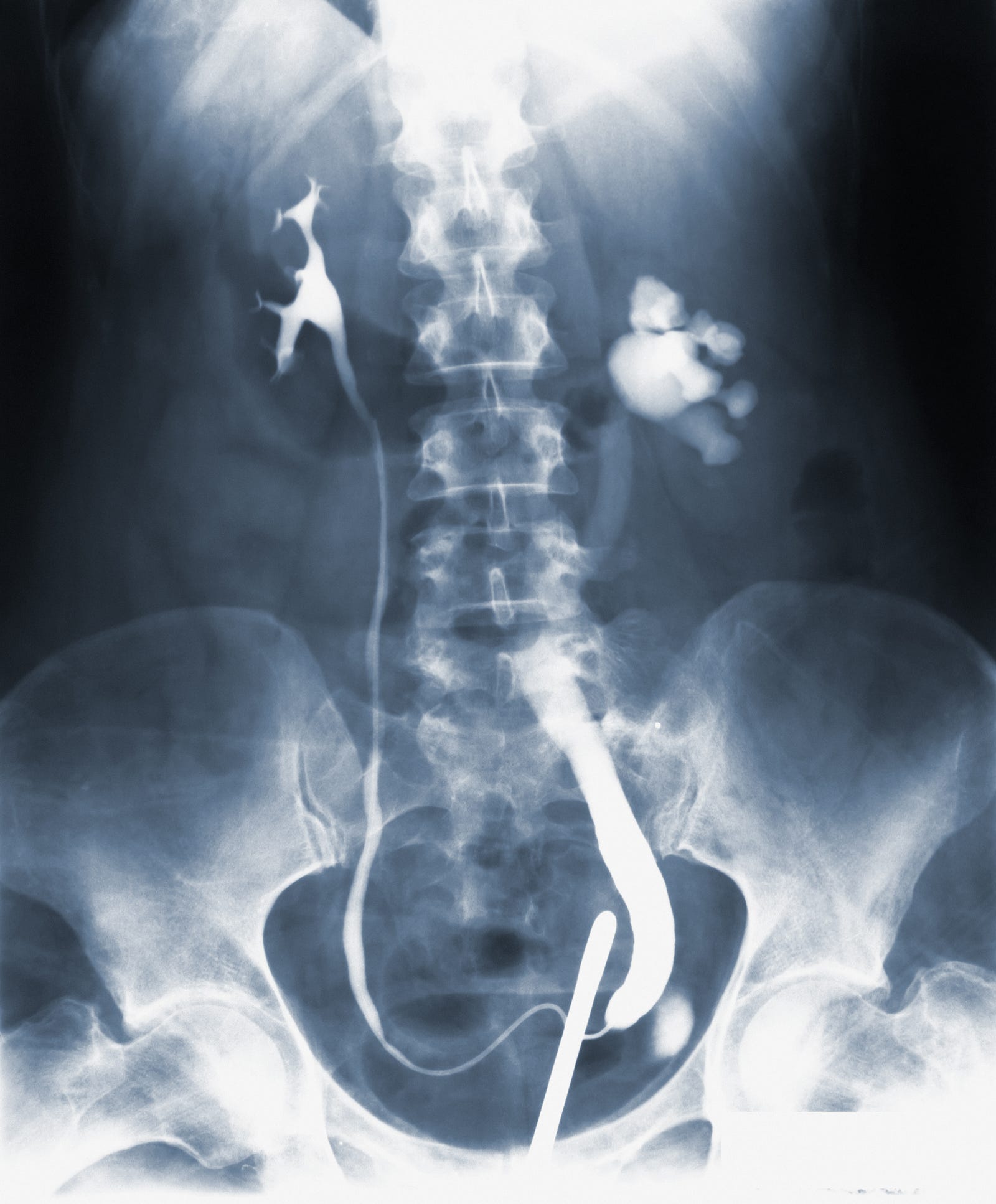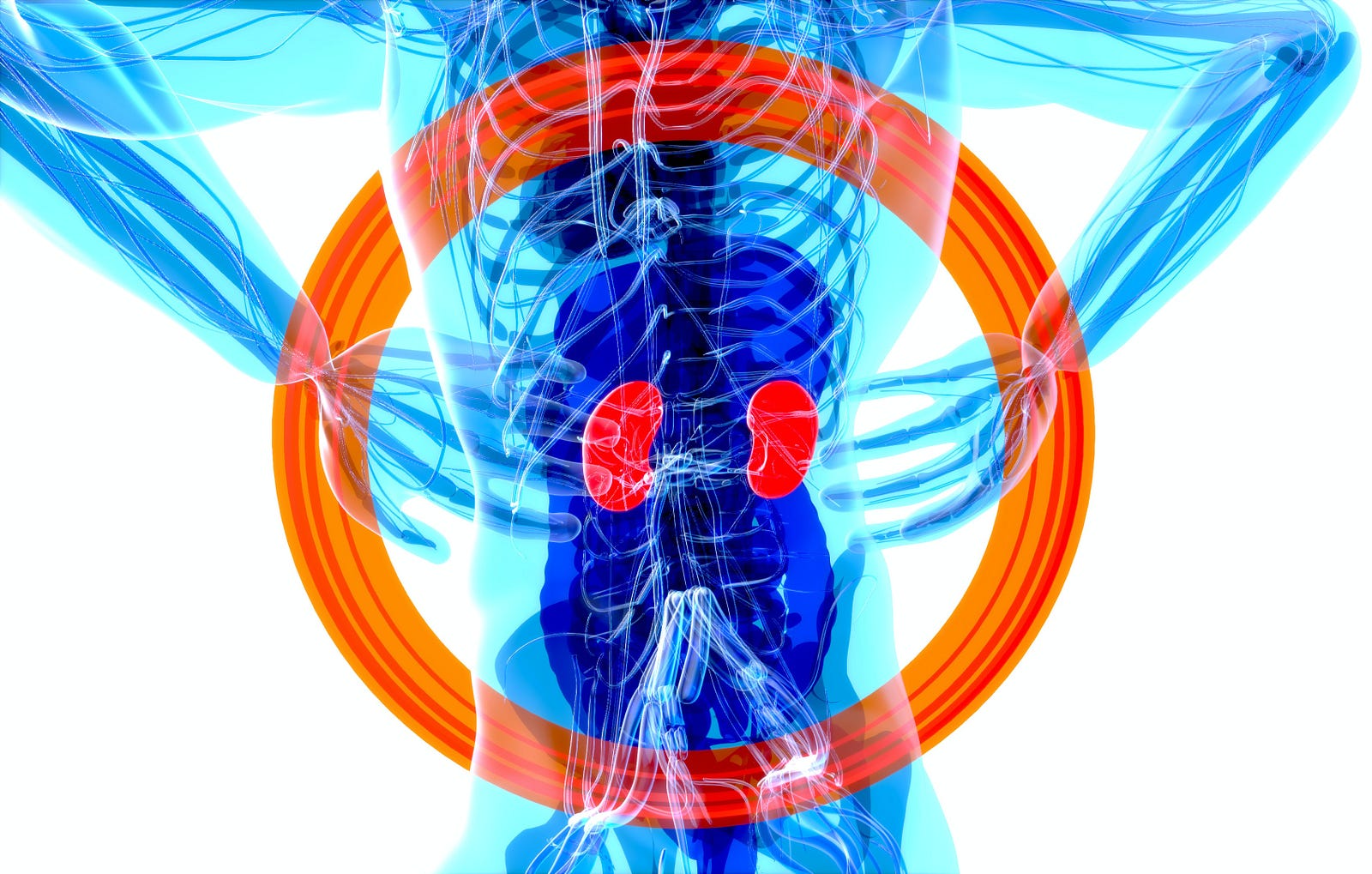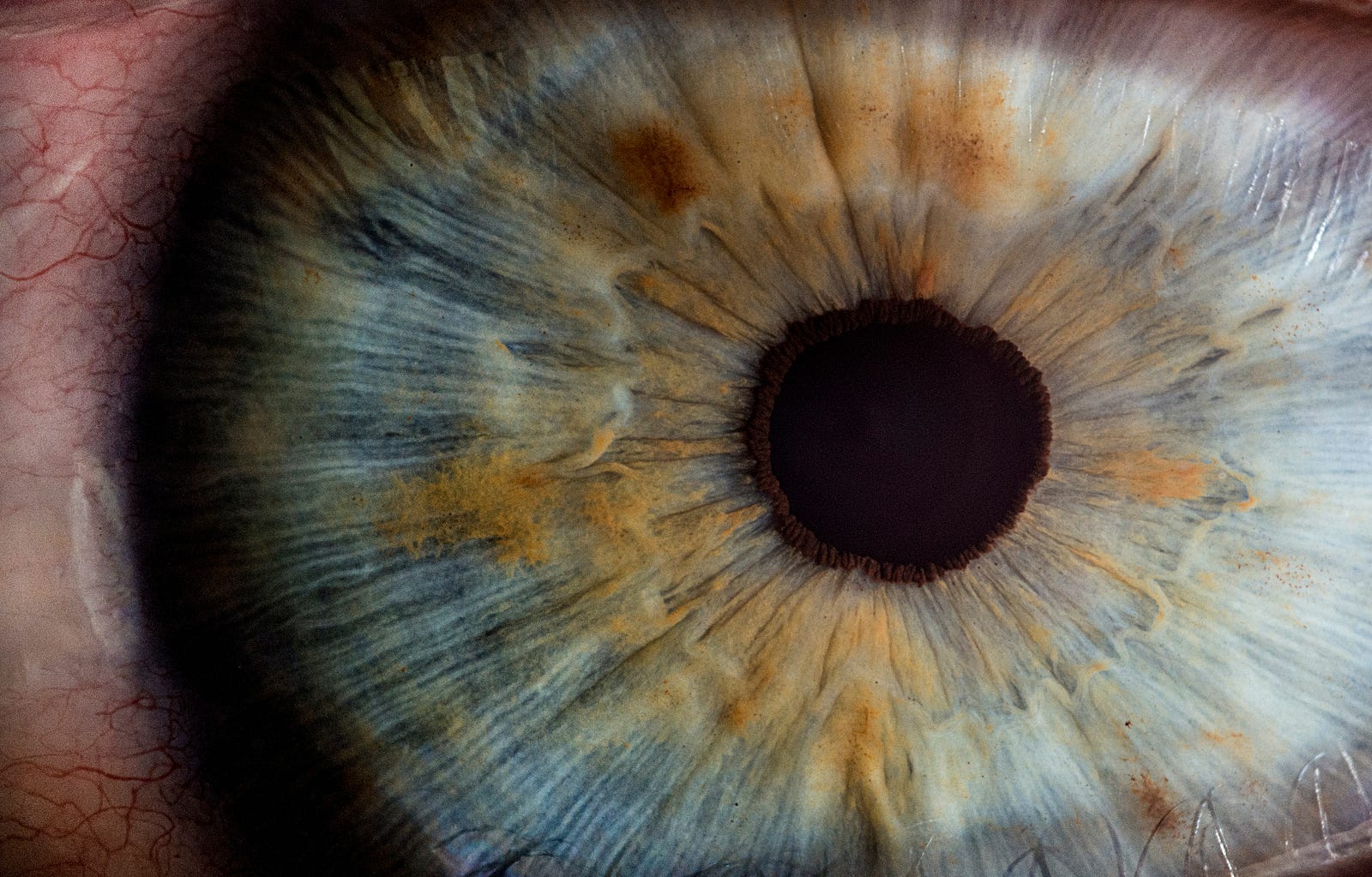I RECENTLY HAD A 3D EYE SCAN as a part of a preoperative workup for the removal of a recurrent benign pituitary tumor. I learned this eye imaging technique can reveal vital insights into kidney health. Today, we explore through the looking glass: How 3D Eye Scans Illuminate Kidney Wellness.
This remarkable advancement comes at a crucial time, as kidney disease often lurks undetected in its initial stages, showing no noticeable symptoms.
I want to share the potential of 3D retinal images — captured using optical coherence tomography (OCT) technology — to identify and accurately predict kidney disease progression.
What is Kidney Disease?
Imagine your kidneys like a trusty water purifier in your house. They constantly filter your blood, removing waste and extra fluids like unwanted guests in your system.

These guests would normally get kicked out through your urine, but chronic kidney disease makes the filters sluggish and less effective.
Over time, the unwanted guests start to build up like a party gone wrong, making you feel bad and potentially causing serious health problems.
Chronic Kidney Disease Symptoms
With chronic kidney disease, there is a gradual loss of kidney function. When the condition reaches an advanced stage, dangerous fluids, electrolytes, and toxins can build up in the body.
Symptoms of chronic kidney disease develop over time. While symptoms may be non-specific, here are some selected ones, according to the World Health Organization:
- Nausea
- Vomiting
- Fatigue
- Weakness
- Appetite loss
- Sleep problems
- Urine output changes
- Diminished mental sharpness
- Feet or ankle swelling
- High blood pressure
- Muscle twitches and cramps
But Symptoms Can Be Non-Specific
Unfortunately, chronic kidney disease symptoms can be non-specific. I mean that other health issues can also cause the symptoms.

Here are some risk factors that increase chronic kidney disease risk:
- High blood pressure
- Diabetes
- Heart disease
- Obesity
- Smoking
Chronic kidney disease has no cure. Generally, management includes measures to help control signs and symptoms, reduce complications, and slow disease progression.
Eye Imaging Can Detect Kidney Disease
Now comes some exciting news.
Scientists have made a big discovery using 3D eye scans to learn important things about kidney health. This advance could change how we find and keep track of kidney problems early on.
These 3D eye scans can alert us about kidney trouble before people start feeling sick.
This approach could be a game-changer because many folks don’t realize their kidneys are in trouble until it’s too late.
With this new tech, we can catch kidney issues early and help folks before things get really bad.
A New Study — Eye Exams Reflect Kidney Health
Scientists at the University of Edinburgh (Scotland) used 3D images of the back of the eye, taken with optical coherence tomography (OCT) technology, to figure out and foresee the development of kidney disease.

OCT scanners, which eye doctors often use, use light waves to create detailed pictures of the layers inside the eye in just a few minutes.
Study Results – 3D Eye Scans to Detect Kidney Disease
The researchers examined eye images of 204 people with different levels of kidney problems, including those who had received new kidneys.
They also checked the eyes of 86 healthy volunteers for comparison. The results were surprising.
People with chronic kidney disease had thinner retinas (the back part of the eye) than those without kidney issues.
Interestingly, the thinning of the retinas matched how much the kidneys were struggling, showing a clear connection between the two.
Study Implications – 3D Eye Scans
The most exciting discovery was that the thinning of the retinas in people with kidney disease could be fixed after a successful kidney transplant.
After getting a new kidney, Those with the most severe form of the disease saw their retinas quickly thicken.
This finding strongly suggests that the kidneys play a big role in retinal health.
The Context: Kidney Disease is a Growing Problem
The U.S. Centers for Disease Control (CDC) numbers are staggering.
First, chronic kidney disease (CKD) is becoming one of the planet’s most prevalent non-communicable chronic diseases.
Kidney diseases are a leading cause of death in the U.S. While 37 million adults may have chronic kidney disease, most are undiagnosed.

The prevalence of chronic kidney disease (CKD) is also increasing globally, with the condition projected to become the fifth most prevalent chronic one by 2040.
Diabetes and high blood pressure are the leading kidney failure causes, accounting for three out of four new cases in the United States.
My Take — Through the Looking Glass: 3D Eye Scans Illuminate Kidney Wellness
Kidney disease is becoming a bigger health worry, with more people at risk.
This problem often happens because of other conditions like diabetes, high blood pressure, and being overweight, which put a lot of strain on the kidneys.

Checking and monitoring kidney health during regular eye check-ups could be a game-changer. It might help catch the disease early on before it sneaks up and gets worse.
Plus, early discovery of the disease would give people the power to make changes in their lifestyle that can lower the risk of more health problems.
While this is exciting news, we need larger clinical trials to confirm the results.
Actionable Risk Factors
Please talk to your healthcare provider about getting tested if you have any of these risk factors:
- Diabetes. If you have diabetes, stay in your target blood sugar range as much as possible.
- Family history of chronic kidney disease
- Heart disease
- High blood pressure. Keep your blood pressure below 140/90 mm Hg (or the target your healthcare provider establishes for you).
- Obesity. Consider losing weight.
Consider chatting with a dietician about a kidney-friendly diet. And — this one is for everyone who can — get some physical activity.
Finally, don’t smoke. And please take prescribed medicines as recommended.
Thank you for reading “3D Eye Scans.” On a different subject, here’s what I wrote:




